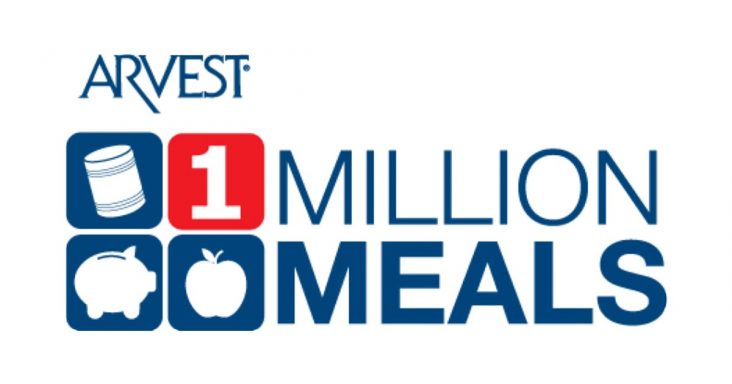Arvest Bank completes 13th year of Million Meals initiative
by June 14, 2023 2:36 pm 1,165 views

Arvest Bank’s 13th annual Million Meals campaign raised $101,791 to benefit over 30 food partners in Northwest Arkansas, southwest Missouri and eastern Oklahoma.
During an event at Arvest Ballpark in Springdale on Tuesday (June 13), the Fayetteville-based lender revealed its regional fundraising totals and presented checks to its food partners.
The Million Meals initiative aims to provide at least one million meals to those in need, with $1 equivalent to up to five meals through local food pantries.
According to a news release, the funds raised will help provide 508,955 meals to regional nonprofit organizations, essential during summer when children lack school meals.
“We continue to be amazed by the outpouring of support from customers, community members and associates,” said Craig Shy, president of the bank’s Fayetteville market. “Through their help, we are now seeing contribution levels not seen since before the COVID-19 pandemic. We are grateful for their role in fighting hunger throughout our communities and for helping us once again exceed our ‘million meals’ goal.”
Arvest maintains its charter in Fayetteville but operates over 200 bank branches in Arkansas, Oklahoma, Missouri and Kansas through 14 locally managed banks, each with an independent board and management team.
During the eight-week campaign, the bank collected $459,658, benefiting 84 organizations throughout its four-state footprint. That totals 2,298,291 meals, a nearly 20% increase from the previous year.
Since 2011, the initiative has raised 22.9 million meals, including over $4.1 million in funds given directly to local community food partners.
$41,759 in donations were collected through the Arvest Go mobile banking app, totaling $197,299 since its launch in 2018.
Arvest launched Million Meals due to the ongoing hunger issue in the communities it serves.
Arkansas and Oklahoma rank among the most food-insecure states, while Missouri and Kansas rank above or at the national average, according to recent USDA data from 2019-2021.
